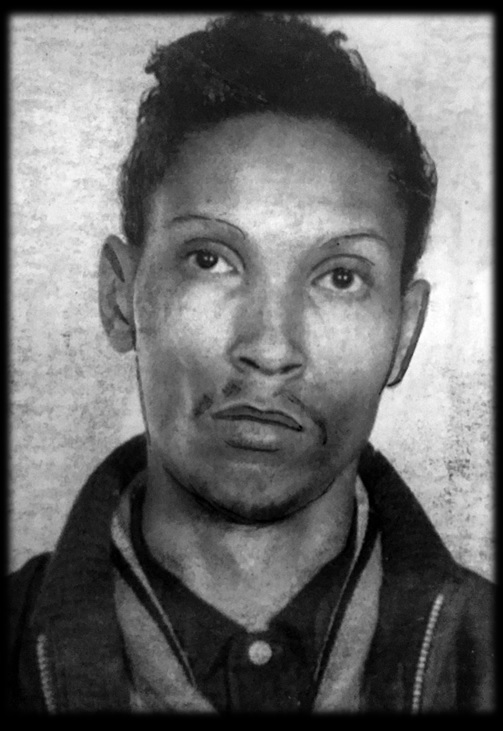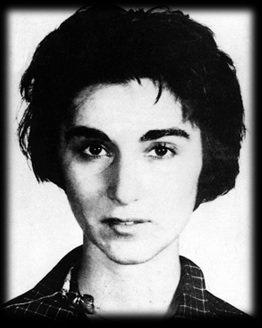

By San Diego standards the number of people murdered in 1964 New York City (636) would be considered off the charts. However, for America’s largest city, home to (then) 7.8 million people, that number was considered average. Except one - the rape and murder of a 30-year-old bartender. That case would come to shake America to its core and spark a debate that even today sociologists still discuss.
March 13, 1964. 0300 hours. Catherine “Kitty” Genovese was just getting home from work when she parked in the Kew Gardens Station Long Island Rail Road parking lot about 100 feet from her apartment's door. Located in an alleyway at the rear of the building, Kitty was walking towards the door when she was approached by Winston Moseley, a married father of two who resided in Queens and had no criminal record.
Moseley must have cast a frightening presence as Kitty began running across the parking lot towards the front of her apartment building.
She didn’t make it. Moseley caught up to her and thrust a knife into her back. Kitty screamed, "Oh my God, he stabbed me! Help me!" Several neighbors heard her cry but, on a cold night with windows closed, few recognized the sound as a cry for help. One neighbor, Robert Mozer, shouted into the night "Let that girl alone!" however did nothing else.
One witness watched Moseley enter his car and drive away. Mosely returned ten minutes later with a hat shadowing his face. Kitty was barely conscious in a hallway at the back of the building. A locked doorway had prevented her from entering the building. Now obscured from the street Moseley stabbed Kitty several more times then raped her over a half hour period.
Finally, at 0345 a neighbor, Sophia Farrar, ran to Kitty to render help. She was barely alive. Minutes later another witness, Karl Ross called the police. NYPD arrived within minutes. Kitty was rushed by ambulance however she died en-route to the hospital.
Winston Moseley was ultimately arrested. In his confession he said his motive was simply "to kill a woman because they were easier and didn't fight back.” He also confessed to raping and murdering two other women and to committing 30- 40 burglaries. Subsequent psychiatric examinations suggested Moseley was a necrophile.
Moseley received a death sentence for the Genovese murder. When the jury foreman pronounced the sentence, Moseley showed no emotion however a number of court spectators applauded and cheered. The trial judge commented "I don't believe in capital punishment but when I see a monster like this I wouldn't hesitate to pull the switch myself."
On June 1, 1967, an appeals court ruled Moseley should have been able to argue that he was insane and his death sentence was commuted to life with parole.
Moseley escaped from prison on March 18, 1968, and a series of violent crimes before he was recaptured. He died on March 28, 2016, at the age of 81 having spent more than half a century behind bars.
Back to 1964. At first the Kitty Genovese murder barely made the news. That all changed when, two weeks later, NYPD Commissioner Michael Murphy was having lunch with a reporter and mentioned how numerous people saw the murder and no one called police. That launched a follow up investigative report entitled "38 Who Saw Murder Didn't Call the Police." The story centered around an unidentified neighbor who witnessed part of the attack but deliberated before finally getting another neighbor to call police. That neighbor stated, "I didn't want to get involved."
The fallout of the story was many Americans viewed the Genovese murder as emblematic of the callousness of life in big cities.
In September 1971, Winston Moseley participated in the Attica Prison riot, and later earned a BA in sociology.
That same year Rolling Stone Magazine added fuel to the fire when they claimed neighbors "stood by and watched" Genovese "get knifed to death right in front of them and wouldn't make a move." The article further added one man turned up his radio so that he couldn’t hear Genovese scream.
Despite the publicity apparently it did little to change New Yorkers reaction to murders happening in their neighborhood. A December 28, 1974, New York Times article reported a 25-year-old woman was beaten to death early Christmas morning in an apartment overlooking the Genovese crime scene. Like a decade earlier, neighbors stated they heard screams but did nothing.
Winston Moseley first became eligible for parole in 1984. During his hearing he proclaimed himself a casualty by stating, "For a victim outside, it's a one-time or one-hour or one-minute affair, but for the person who's caught, it's forever." Mosely also claimed he never intended to kill Genovese and he only considered her murder to be a mugging because "people kill people when they mug them."
The board denied his parole.
More recent investigations into the 1964 murder have questioned the veracity of part of the case. A 2007 study determined many of the facts to be unfounded stating there was "no evidence for the presence of 38 witnesses, or that witnesses observed the murder, or that witnesses remained inactive." In actuality, a dozen people heard or observed portions of the Genovese attack, though none saw or was aware of the entire incident. Only one witness, Joseph Fink, was aware Genovese was stabbed in the first attack and only Karl Ross was aware of it in the second attack. Many were completely unaware a homicide was occurring - some thought it was either a lovers' quarrel or drunken brawl.
Also in 2007, American Psychologist magazine published an examination of the Genovese murder coverage. The authors concluded the reported story is more parable than fact, largely because of inaccurate newspaper coverage of the incident. According to the authors, "despite this absence of evidence, the story continues to inhabit our introductory social psychology textbooks (and thus the minds of future social psychologists)."
One interpretation of the parable is that the drama and ease of teaching the exaggerated story make it easier for professors to capture student attention and interest.
Winston Mosely died in prison on March 28, 2016.






Catherine “Kitty” Genovese
Winston Moseley